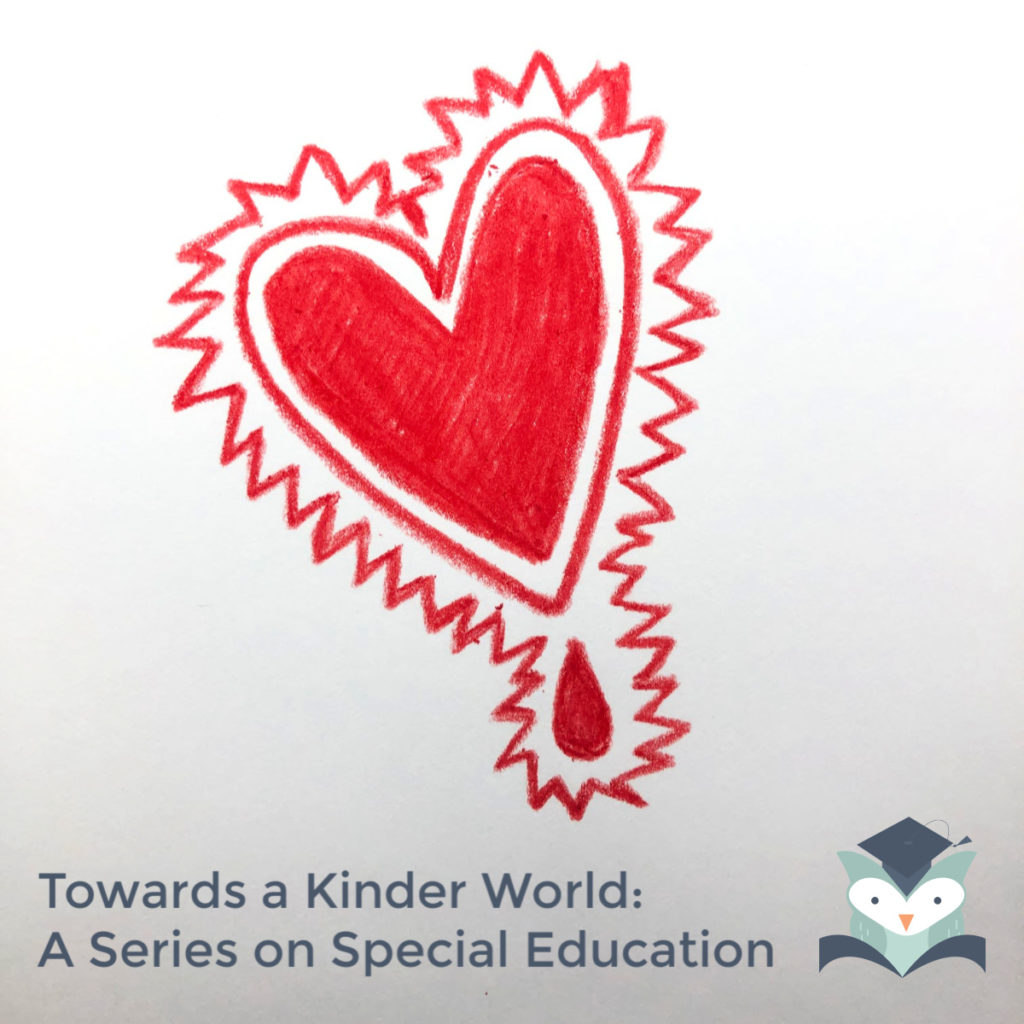
In 2018, I delved into my first special education story. With no understanding of the learning curve ahead of me, I sat down in a room with a group of parents at IDEA Mays, and listened to them tell me their experience with special education at the school.
This is how the parents described their children before IDEA:
“She had trouble reading, she hated school.”
“I knew the happiness was in her, it just wasn’t coming out every day.”
“He was hiding his homework.”
“I knew there was a huge gap.”
And here is how they describe their children after a year at IDEA Mays:
“I’ve seen a complete change in her.”
“Sometimes my son forgets that he has accommodations.”
“I couldn’t even believe her scores!”
“That was a turning point for him.”
Two parents reported that their child no longer needed a 504 plan. One was considering reducing her son’s ADHD medication.
The parents made it sound like IDEA had cracked the code on special education, like they had figured out the cure for learning disabilities.
They have not. No one has. And for each of these parents, I have met other special education parents who have had less-great experiences at various IDEA campuses in San Antonio. The same goes for every public school and private school, except possible places like Brighton Center, The Winston School, and Sunshine Cottage, designed with learning differences in mind.
Solving for Reading
IDEA gets students reading, and that has changed the entire experience of school for some students, whether or not their brains still flip letters, jumble sounds, or struggle to stay focused.
All of the parents in the room at IDEA Mays that day had students with some mix of attention deficit disorder, and attention deficit hyperactivity disorder, and what researchers call “specific learning disabilities” like dyslexia.
All of these affect a student’s ability to read, but they do not have to be “cured” in order for a child to learn to read. And, as the parents testified, learning to read can quell some of the most demoralizing and frustrating academic, social, and emotional effects of ADD, ADHD, and specific learning disorders.
Some of the IDEA Mays students, parents reported, were managing their learning difference with the intensive literacy support provided by IDEA. One wondered if her student had really needed a 504 plan in the first place.
It’s difficult to know whether a student truly has a brain-based learning disorder until they have received adequate instruction, child neuropsychologist Jack Fletcher says. In a forthcoming text book on learning disabilities, he writes that the first common feature of specific learning disorders is struggling in reading, math, or writing.
The social responses of being embarrassed or frustrated in class are shared by kids who cannot read well because of poor instruction and those who cannot read well because of a learning difference. Combine anxiety and antsy behavior around reading, hiding home work, or hating school with difficulty reading, and many parents and teachers might suspect a disability.
This is where parents will probably raise a flag on dyslexia, dyscalculia, or dysgraphia, but parents whose child has ADD or ADHD have probably already suspected it before schooling age. Fletcher said in an interview, “ADHD is typically a problem that starts pretty early.”
The second core feature of specific learning disabilities has a lot to do with school: persistence. For something to be classified as a disability, it must not be the result of poor instruction. “It can be difficult to separate SLDs from academic problems due to inadequate instruction, which might include general education classroom instruction as well as remedial instruction,” Fletcher writes.
Attention disorders often occur alongside specific learning disabilities, but even without a specific learning disability, they interfere with reading. In either case, ADHD and ADD will require specific intervention in behavior and academics at school and at home, and possibly medication, Fletcher writes.
Learning Differences Persist
True disabilities, Fletcher explained in an interview, simply do not resolve with high quality instruction.
However, learning to read changes the way students coping with specific learning disabilities experience school. And that feels good to parents who have been at their wits’ end.
IDEA Mays succeeded with these families because of its Critical Student Intervention system, which offers intensive reading support to students until they are reading on grade level. Though it’s not dissimilar to what some students might find on their 504 plan or individualized education plan, said Jennifer Martinez, Critical Student Intervention Coach at IDEA Mays, “I don’t want to say it’s going to substitute for an IEP.”
Likewise, students don’t need an IEP to get this instruction. Any student reading at grade levels two or more years behind receives the support. The same goes for math.
Like most things at IDEA, the plan is very structured. Teachers follow a specific, proven script based on skills required to read fluently. Students are tested five times per year to track their progress—August, October, January, March, and May.
“Our goal is to have students either make two years growth or finish the year on grade level,” Martinez said. In 2019, 40 percent of 3rd–5th graders met that goal. In 2020, 36 percent of 3rd and 4th graders meet their goals by mid year.
If students are receiving evidence-based reading instruction from day one, Fletcher explained, their disability will still show itself. Kids with ADHD will likely still need help staying organized. They, along with those who read dyslexically, will still still need to minimize distractions. They can be avid readers and still their unique brains are their unique brains. However, they will not fall so far behind their peers before a solution is reached. This will reduce the likelihood that they will be depressed, ashamed, or angry.
Parents who suspect that their child has an attention or specific learning disability will likely have to request interventions. If they are lucky, the school will catch on quickly, maybe even before the parents. However, every parent should ask a lot of questions about how students are being taught to read. Not just for their child, but for all children. 
About the Author
Bekah McNeel is a San Antonio-based education writer who focuses on equity, innovation, and social-emotional learning for publications such as The 74. Over the years, we have republished local education coverage from her Hall Monitor site, and last November she wrote for us a four-part series, “Punished, Not Served,” about unfair discipline for students with disabilities.
Read More
- “Evidence-Based Literacy Instruction,” Bekah McNeel, San Antonio Charter Moms, August 12, 2020
- “Identifying Hearing Loss in Children, and Finding Help From Friends,” Bekah McNeel, San Antonio Charter Moms, July 29, 2020
- “Vision Therapy Might Be the Solution for Your Child’s Learning Disorder,” Bekah McNeel, San Antonio Charter Moms, July 8, 2020
- “One Mom’s Experience with a Dyslexia Simulator,” Bekah McNeel, San Antonio Charter Moms, June 24, 2020
- “Celebrate Dyslexia: Education, Identification, and Celebration of Dyslexic Students,” Bekah McNeel, San Antonio Charter Moms, June 10, 2020
